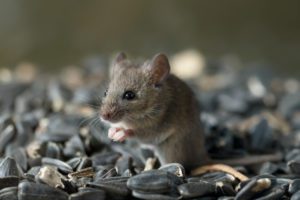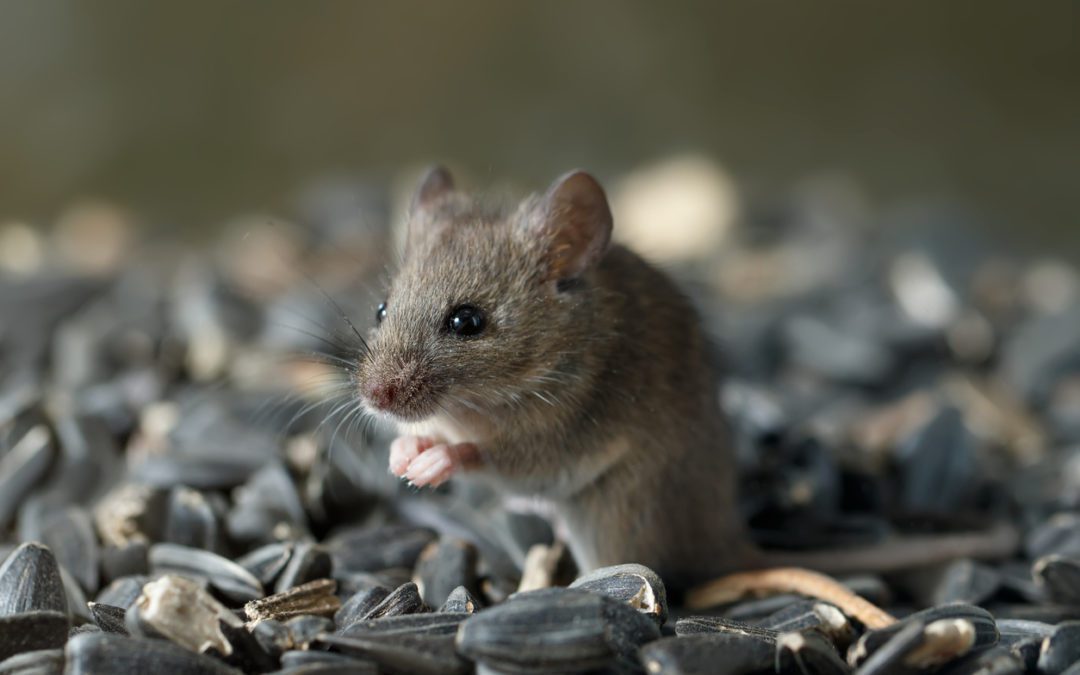It’s that time of year again when mice begin looking for warm and cozy places to spend the winter. At ABC Wildlife, we see the largest increase in mouse infestation problems during fall and winter. Just like people, mice need to escape harsh weather in order to survive. And unfortunately, nearly every home is susceptible to an infestation.

ABC Wildlife has a very effective 3-step system to deal with rodent problems. Our goal is more than just mouse elimination. We also want to lessen the likelihood of the issue reoccurring by closing up those places where the mice are getting in and repairing the damage they’ve caused.
Step 1: Abatement
We all want to believe in the best possible outcome of a sticky situation, so it’s pretty common for homeowners to think that if they see a mouse, it’s a one-time thing. Unfortunately, that is almost never the case. Mice aren’t solitary animals, and they breed like crazy. If you come across one, there is most certainly a whole colony of them. In fact, if you actually see one out in the open (especially during the day), it usually means that the population is so big that the poor little guy has to go out during abnormal hours to find something to eat so he’s not competing with other mice.
“Abatement” is a word we throw around a lot in pest control that really just means controlling a pest population. This is the first step in solving a rodent problem. You’ve got to eliminate the mice before moving onto animal-proofing, otherwise you’ll just seal them in and end up with a house full of dead mice. No one wants that. ABC Wildlife’s Mouse Treatment Program uses proven mouse elimination methods to knock out rodent colonies. We design a program based on the level of mouse activity in the home, monitor the population over a series of visits, and determine when the mice are gone and it’s time to move onto the next step.
Step 2: Animal-Proofing
Now that you’ve gotten rid of the mice, you don’t want another colony to move in after them. Like I said before, mice can squeeze into the tiniest of places. Building materials shift and settle over the years leaving gaps and cracks. Utility and appliance exhaust lines have open space around them where they lead out of the house. There are any number of possibilities, and they must be sealed up. ABC Wildlife’s mouse elimination technicians have years and years of experience finding these areas in people’s homes on a daily basis. They’re able to come in, find the places most likely to attract rodents, and close them up with gap sealing and specially designed animal-proofing devices.
Step 3: Sanitizing
I can tell you that there is an excellent reason why people have a natural aversion to mice: they are gross. Truly. Animals like raccoons will designate a specific area as a latrine site. But when mice travel from place to place, they urinate and defecate as they go so they leave a scent trail. This means that essentially everywhere they go is covered in urine and feces. Multiply this by 20 to 50 mice, and you’ve got a huge contamination problem on your hands. Mice spread all kinds of diseases like leptospirosis, hantavirus, and salmonellosis, plus they carry parasites like fleas. Even after they’re gone, these dangers can be left behind. Replacing material that has been damaged by mice and sanitizing the areas where they’ve been living is the final step in dealing with a rodent problem. At ABC Wildlife, we help out clients get their homes back to normal by doing feces clean-up, replacing soiled attic insulation, and applying a specially formulated flea and odor treatment to affected areas. This kind of sanitizing ensures that all health hazards associated with the mice are eliminated and future families of mice won’t be attracted by the smell.
When we sense that there might be an animal problem in our home, it’s definitely tempting to ignore the problem and hope it will go away. I understand that impulse, but in the case of mice especially, it’s important to nip the problem in the bud as quickly as possible. And you don’t have to do it alone. Companies like ABC Wildlife perform mouse elimination work day in and day out, and we’ve got a tried and true system that’s efficient and effective. Give us a call at (847) 870-7175 to talk to one of our representatives. Everyone who works for the company is licensed by the State of Illinois in wildlife control, and they’re prepared to answer your questions. We love hearing from people, and we love helping people. What questions do you have about mice? Let us know in the comments!



